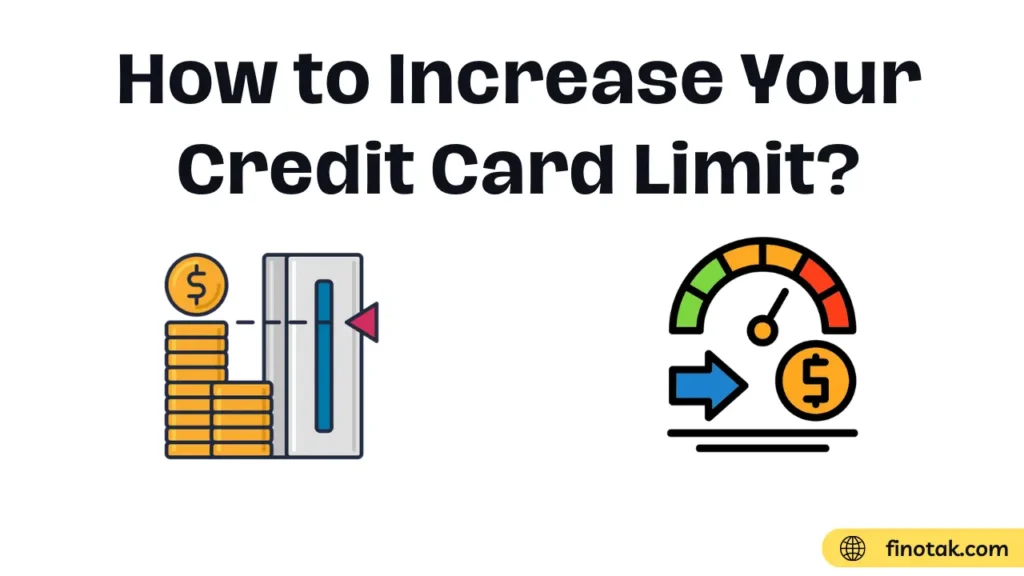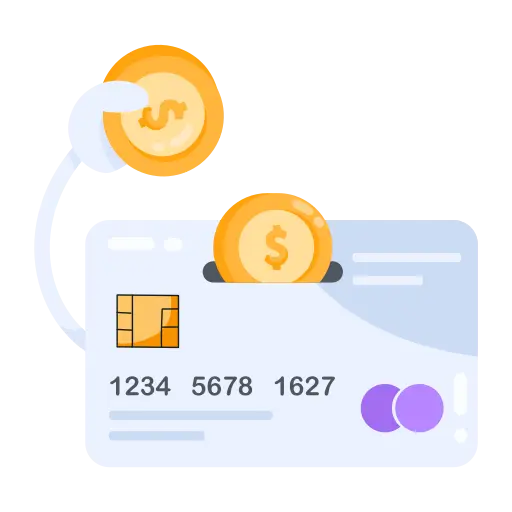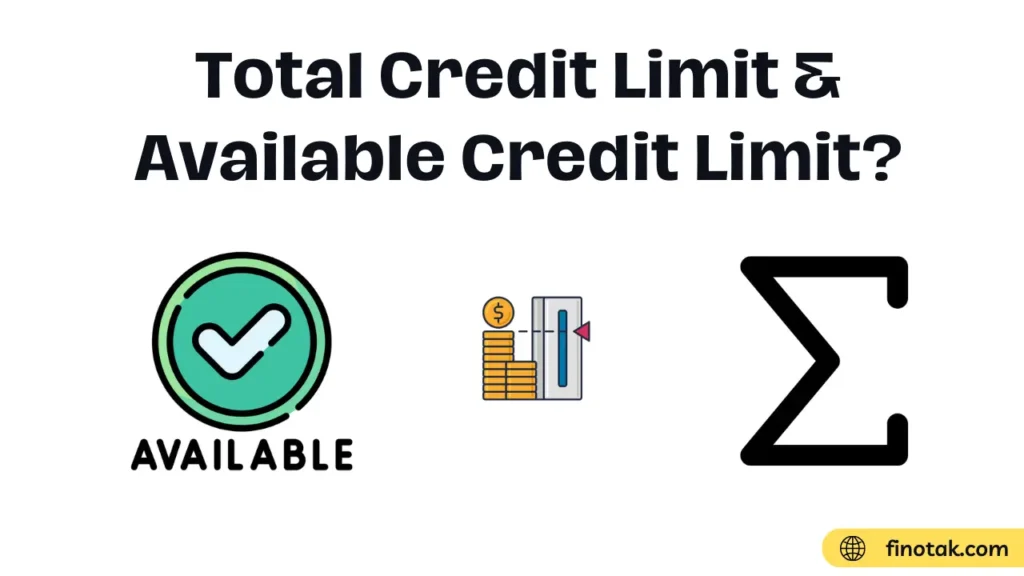Credit Card Limit: Feeling the constant worry of hitting that credit card limit? Maybe it’s time to boost your credit card limit and kiss those anxieties goodbye, giving you the freedom to live life to the fullest.
- What is a credit card limit?
- How to increase the credit card limit on your credit card?
- Difference between Total Credit Limit and the Available Credit Limit?
- Increasing Your Credit Card Limit (Pros & Cons)
- Increase Your Credit Card Limit FAQ
- How can I increase my credit card limit?
- What factors do credit card companies consider when deciding whether to increase my credit limit?
- Will requesting a credit limit increase affect my credit score?
- How often can I request a credit limit increase?
- Is there a minimum credit score required to be eligible for a credit limit increase?
- Are there any downsides to increasing my credit card limit?
- Can I request a credit limit decrease if I feel my current limit is too high?
- What should I do if my request for a credit limit increase is denied?
What is a credit card limit?
Life’s pleasures are boundless, but credit cards come with a spending cap. Your credit card limit is the maximum amount you can spend without incurring penalties during each credit cycle. The issuing bank sets this limit on your card, and it typically varies from one user to another.
Several factors influence the determination of your credit card limit. These include the type of credit card, your income, your ability to repay debts, your credit score, your past payment history, and your current financial obligations. In essence, your entire credit history is thoroughly examined to establish this spending threshold.

Naturally, you must not surpass the set spending limit on your credit card. Once you reach this maximum limit, your credit card issuer has the right to reject all future transactions. Furthermore, exceeding the maximum spending limit could result in penalty charges, which would significantly disrupt your financial peace. Additionally, the credit limit on your card also impacts your credit score.
However, there’s no need to fret, as a single astute decision can resolve these issues—obtaining a credit card limit increase. Learn how to increase your credit card limit, particularly if you anticipate significant upcoming expenses.
How to increase the credit card limit on your credit card?
Increasing your credit card limit can provide more financial flexibility and improve your credit utilization ratio. Here are some steps to consider:
- Request a Credit Limit Increase:
- Contact Your Credit Card Issuer: Reach out to your credit card company’s customer service department through their website, mobile app, or by phone. Inquire about the process for requesting a credit limit increase.
- Prepare Your Information: Gather relevant financial information, including your income, expenses, and any outstanding debts. Providing this information will help the credit card issuer assess your creditworthiness and determine if you qualify for a higher credit limit.
- Maintain a Good Credit Score:
- Pay Bills on Time: Consistently paying your credit card bills on time is crucial. Payment history is a significant factor in determining your credit score. Aim to pay your bills in full each month to demonstrate your reliability as a borrower.
- Keep Your Credit Utilization Low: Avoid using a large portion of your available credit. Aim to keep your credit utilization below 30% of your credit limit. High credit utilization can negatively impact your credit score.
- Use Your Credit Card Responsibly:
- Make Frequent Purchases: Actively use your credit card for regular purchases and pay them off promptly. Consistent usage demonstrates to the credit card issuer that you are a responsible borrower.
- Avoid Cash Advances: Cash advances usually come with high fees and interest rates. Using cash advances too frequently may raise concerns about your financial stability.
- Ask for a Higher Limit Periodically:
- Regular Reviews: Credit card issuers often conduct periodic reviews of your account. If you have maintained a good payment history and responsible credit usage, you may receive a credit limit increase without having to request it.
- Multiple Requests: Don’t be discouraged if your initial request for a credit limit increase is denied. You can submit subsequent requests periodically, as long as you continue to demonstrate responsible credit behavior.
- Consider a Balance Transfer:
- Transferring Debt: If you have balances on other credit cards with higher interest rates, consider transferring those debts to a card with a lower interest rate and a higher credit limit. This can free up available credit and potentially improve your credit utilization ratio.
- Become an Authorized User:
- Joint Accounts: If you have a joint credit card account with someone who has a good credit history and high credit limit, you may benefit from becoming an authorized user on that account. This can positively impact your credit score and potentially increase your chances of obtaining a higher credit limit on your own card.
10 Best Credit Cards in India 2024
- Consider Applying for a New Card:
- Multiple Credit Cards: Having multiple credit cards with different issuers can diversify your credit mix and help you access a higher overall credit limit. However, be mindful of managing multiple credit accounts responsibly to maintain a good credit score.

Difference between Total Credit Limit and the Available Credit Limit?
The available credit limit is distinct from the total credit limit, which is often known as the overall credit limit on your card. It represents the amount remaining for the credit card holder to use after deducting the amount for purchases and interest charged from the total credit limit. However, the available limit on your credit card varies when the credit card holder makes payments towards the principal amount and the interest.

Here’s how it works:
– The total credit limit is the maximum amount you can borrow on your credit card.
– The available credit limit is the difference between the total credit limit and the amount you have already used through purchases and interest.
– As you make payments towards the principal and interest, your available credit limit increases because the amount you’ve repaid becomes available for future use.
In essence, the available credit limit is the remaining credit you can access on your card at any given time, taking into account your current balance and the total credit extended to you by the card issuer.
Increasing Your Credit Card Limit (Pros & Cons)
Increasing your credit card limit can be a beneficial financial move, but it’s important to approach it with caution and responsibility. Here are some key points to consider:
Advantages
- Improved Credit Utilization: A higher credit limit can lower your credit utilization ratio, which may positively impact your credit score.
- Emergency Funds: A larger credit limit can serve as a backup in case of emergencies or unexpected expenses.
- Enhanced Purchasing Power: With a higher limit, you have more flexibility for larger purchases or transactions.
Considerations
- Temptation to Overspend: A higher limit can lead to increased spending if not managed carefully.
- Impact on Credit Score: Requesting a higher limit may result in a hard inquiry, temporarily affecting your credit score.
- Debt Accumulation: If not used responsibly, a higher limit can lead to increased debt if balances are not paid off regularly.
Conclusion
Increasing your credit card limit can offer various advantages, but it should be approached thoughtfully. It’s essential to maintain responsible spending habits and keep track of your finances to ensure that a higher limit doesn’t lead to unmanageable debt. Always consider your individual financial situation and discipline before deciding to increase your credit limit.
Increase Your Credit Card Limit FAQ
How can I increase my credit card limit?
To increase your credit card limit, you can contact your credit card issuer either by phone or through their online portal. Many issuers also provide the option to request a credit limit increase through their mobile app.
What factors do credit card companies consider when deciding whether to increase my credit limit?
Credit card companies typically consider your payment history, credit score, income, and overall credit utilization when determining whether to increase your credit limit.
Will requesting a credit limit increase affect my credit score?
In most cases, requesting a credit limit increase will result in a hard inquiry on your credit report, which may cause a temporary dip in your credit score. However, if you are approved for the increase and maintain a low credit utilization, it can have a positive impact on your credit score over time.
How often can I request a credit limit increase?
The frequency of credit limit increase requests varies by credit card issuer. Some issuers allow requests every six months, while others may have different policies. It’s best to check with your specific credit card company for their guidelines.
Is there a minimum credit score required to be eligible for a credit limit increase?
While there is no specific minimum credit score required for a credit limit increase, having a higher credit score generally improves your chances of approval. Additionally, demonstrating responsible credit card usage and a consistent payment history can positively influence the decision.
Are there any downsides to increasing my credit card limit?
Increasing your credit card limit can potentially lead to higher spending if not managed carefully. It’s important to remember that a higher credit limit does not equate to additional income and should not be seen as an opportunity to accumulate more debt.
Can I request a credit limit decrease if I feel my current limit is too high?
Yes, you can request a credit limit decrease from your credit card issuer if you believe your current limit is too high. This might be a good option if you want to reduce the temptation to overspend or if you’re concerned about potential misuse of your card.
What should I do if my request for a credit limit increase is denied?
If your request for a credit limit increase is denied, you can ask the credit card issuer for the specific reasons behind the decision. Additionally, focus on improving your credit score, reducing outstanding debt, and maintaining a positive payment history to increase your chances of approval in the future.